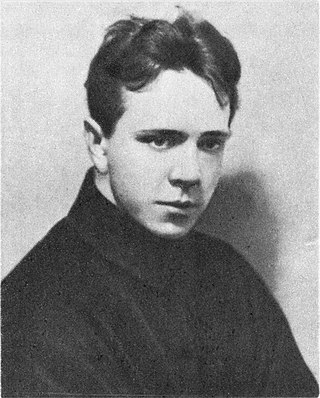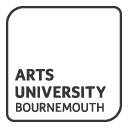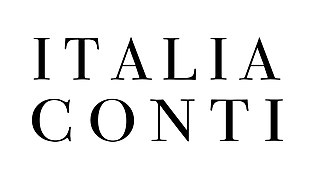
A theatre director or stage director is a professional in the theatre field who oversees and orchestrates the mounting of a theatre production such as a play, opera, dance, drama, musical theatre performance, etc. by unifying various endeavors and aspects of production. The director's function is to ensure the quality and completeness of theatre production and to lead the members of the creative team into realizing their artistic vision for it. The director thereby collaborates with a team of creative individuals and other staff to coordinate research and work on all the aspects of the production which includes the Technical and the Performance aspects. The technical aspects include: stagecraft, costume design, theatrical properties (props), lighting design, set design, and sound design for the production. The performance aspects include: acting, dance, orchestra, chants, and stage combat.

Dartington Hall in Dartington, near Totnes, Devon, England, is an historic house and country estate of 1,200 acres (4.9 km2) dating from medieval times. The group of late 14th century buildings are Grade I listed; described in Pevsner's Buildings of England as "one of the most spectacular surviving domestic buildings of late Medieval England", along with Haddon Hall and Wingfield Manor. The medieval buildings are grouped around a huge courtyard; the largest built for a private residence before the 16th Century, and the Great Hall itself is the finest of its date in England. The west range of the courtyard is regarded nationally as one of the most notable examples of a range of medieval lodgings. The medieval buildings were restored from 1926 to 1938.

LASALLE College of the Arts, simply known as LASALLE, is a publicly-funded post-secondary arts institution in Singapore, and a constituent college of the University of the Arts Singapore (UAS) from 2024.

Mikhail Aleksandrovich Chekhov, known as Michael Chekhov, was a Russian-American actor, director, author, and theatre practitioner. He was a nephew of the playwright Anton Chekhov and a student of Konstantin Stanislavski. Stanislavski referred to him as his most brilliant student.

Arts University Bournemouth is a further and higher education university based in Poole, England, specialising in art, performance, design, and media. It was formerly known as The Arts University College at Bournemouth and The Arts Institute at Bournemouth and is the home of Bournemouth Film School.

Queen Margaret University is a university founded in 1875 and located near Musselburgh, East Lothian. It is named after the Scottish Queen Saint Margaret.

The Italia Conti Academy of Theatre Arts, also known as Italia Conti Arts Centre, and formerly known as the Italia Conti Academy of Theatre Arts, is a conservatoire-style drama school based in Woking, England. It was founded by the actress Italia Conti in 1911. Italia Conti delivers courses in acting, musical theatre, and dance, catering mostly for 16+ and 18+ students through its higher education programmes, and for younger learners (3-18yrs) through it's Associate Schools and pre-vocational courses.

Falmouth University is a specialist public university for the creative industries based in Falmouth and Penryn, Cornwall, England. Founded as Falmouth School of Art in 1902, it was later known as Falmouth College of Art and Design and then Falmouth College of Arts until 2012, when the university college was officially granted full university status by the Privy Council.

The Royal Welsh College of Music & Drama is a conservatoire located in Cardiff, Wales. It includes three theatres: the Richard Burton Theatre, the Bute Theatre, and the Caird Studio. It also includes one concert hall, the Dora Stoutzker Hall.

The Academy of Performing Arts in Prague is a university in the centre of Prague, Czech Republic, specialising in the study of music, dance, drama, film, television and multi-media. It is the largest art school in the Czech Republic, with more than 350 educators and researchers, and 1500 students.

Nanyang Academy of Fine Arts is a publicly-funded post-secondary arts institution in Singapore, and a constituent college of the University of the Arts Singapore (UAS) from 2024.
Performing arts education in Australia refers to the teaching of different styles of creative activity that are performed publicly. The performing arts in Australia encompasses many disciplines including music, dance, theatre, musical theatre, circus arts and more. Performing arts education in Australia occurs both formally and informally at all levels of education, including in schools, tertiary institutions and other specialist institutions. There is also a growing body of evidence, from the Australian Council for the Arts and the Parliament of Australia, showing that First Nation's participation in the arts and culture has significant economic, social and cultural benefits to Australia and further supports the outcomes of the Australian governments ‘Closing the Gap’ campaign. There has been an increasing number of scholarships opening up in educational institutions for Indigenous Australians aimed at encouraging this participation in the arts.
The National Centre for Circus Arts is a professional circus school in the Hoxton area in London that offers one of the UK's only university degree programmes in circus. It is a leading centre for contemporary circus training. It supports the professional development of circus performers and circus companies and runs youth and adult evening classes every week. It also runs the London Youth Circus.
The Scottish School of Contemporary Dance is a dance and performing arts school affiliated with the Dundee College. It offers a four-year training from foundation level and prepares students for careers as dance performers, choreographers, and community artists. The School is relatively small and has close links with a variety of professional artists, including the Scottish Dance Theatre, and Thomas Small, director of Shaper Caper.
Bird College – Conservatoire for Dance and Musical Theatre is an independent performing arts school and college, located in Sidcup, South East London, in the London Borough of Bexley.
Roy Hart was a South African actor and vocalist noted for his highly flexible voice and extensive vocal range that resulted from training in the extended vocal technique developed and taught by the German singing teacher Alfred Wolfsohn at the Alfred Wolfsohn Voice Research Centre in London between 1943 and 1962.
Performance Writing was pioneered at Dartington College of Arts in Devon, UK as a radical new approach to writing. It is a multi-modal approach which explores through artistic practice how writing interacts with other art forms and practices — visual art, sound art, time-based media, installation, electronic literature, bookworks, and performance art.

American College Dublin, a constituent college of Irish American University, is a private not-for-profit liberal arts institution accredited by the Middle States Commission on Higher Education (MSCHE). Established in 1993 in Dublin Ireland, the institution is located in the center of Dublin on Merrion Square in a number of Georgian era houses, one of which is the childhood home of Oscar Wilde. In addition to its American accreditation with MSCHE, American College Dublin offers programs placed at level-eight and level-nine on the Irish National Framework of Qualifications which are accredited by the Irish body Quality and Qualifications Ireland (QQI) and for which graduating students receive QQI awards.

Zurich University of the Arts has approximately 2,500 students, which makes it the largest arts university in Switzerland. The university was established in 2007, following the merger between Zurich's School of Art and Design (HGKZ) and the School of Music, Drama, and Dance (HMT). ZHdK is one of four universities affiliated to Zürcher Fachhochschule.

The Fontys School of Fine and Performing Arts is a Dutch vocational university of the arts located in Tilburg, part of the Fontys Hogescholen. The School originated from the merging of various educational institutions that had existed in different capacity before being united under the Fontys group. Among the precursors of the School was the Brabants Conservatorium, one of the nine conservatoires in the Netherlands.














